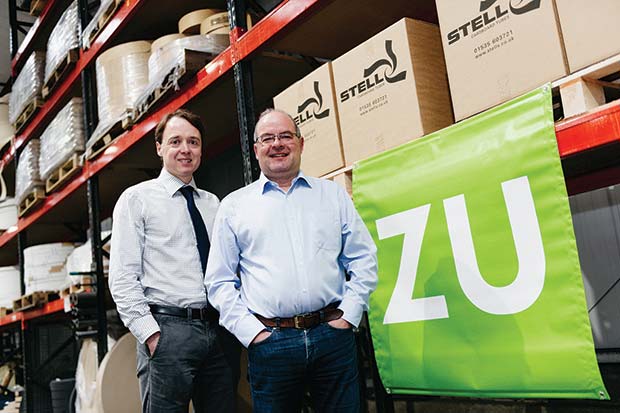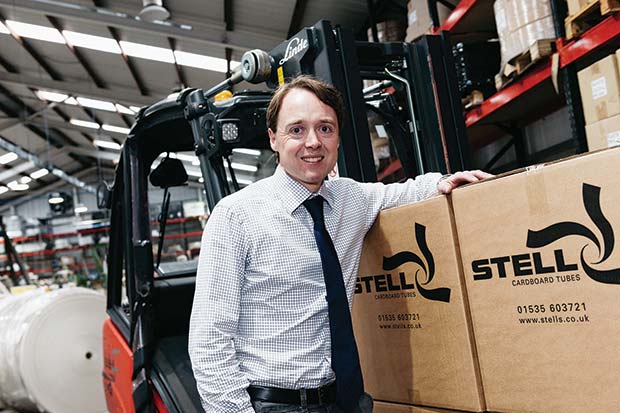The moment when your business attracts interest from further afield is always exciting, but with growth into new regions comes logistical headaches, particularly for manufacturers of low-cost, bulky goods. How can SME manufacturers say ‘yes’ to new opportunities whilst retaining a decent profit margin? We chat to Sam Stell, Director of J Stell and Sons Ltd, about how he looked to the sharing economy for a solution when a new opportunity presented itself.

Zupplychain Managing Director.
Sam, could you tell us a little about J Stell and Sons?
We are a family firm based in Keighley, Yorkshire. We were originally founded in 1872 and have grown to become the leading manufacturer of cardboard tubes in the UK. The tubes we make are used for anything from packaging to advanced electronics, automotive or medical applications. We have a turnover of £8m and employ 100 people.
What logistics challenges do you face in your sector?
Our products are bulky but low cost, so getting products to where they need to be whilst preserving a reasonable profit margin can be a real balancing act.
Can you give us an example?
We were recently approached by a potential new Scottish-based client who was looking for regular small pallet deliveries. We pride ourselves on solving problems for our clients and we wanted the opportunity as it meant expanding into a new region, but the initial quotes were looking cost-prohibitive due to transportation costs.
How did you find a solution?
It became clear that it wasn’t feasible to transport the goods directly from our Keighley based manufacturing site, so I began looking at warehouse storage in Scotland as a solution. I needed a low cost solution as quickly as possible as the clock was ticking on the opportunity. After researching options online, I came across the Zupplychain website, an Airbnb-style matching site for pallets and warehouse space.
After entering some basic details, such as the number of pallets I wanted to store, the site offered up a list of warehouses that fitted my requirements, with a clear pricing structure. I selected a warehouse in Paisley and was able to compile a full and accurate quote with a local logistics solution which enabled me to secure the new business.
What difference has Zupplychain made to your business?
The dynamics of our processes, in terms of run lengths, MTO production, low value per cube and limited warehouse space, have previously made non-local customers with regular but small requirements less profitable or non-viable. The speed with which I was able to find a reasonable solution and present it to the customer allowed me to secure the new business. I’m now intending to use the model to help me target similar new business around the country.

Is the system easy to use?
Submitting the enquiry was very simple and once that was done I spent some further time exploring the Zupplychain website. I realised that not only could Zupplychain find me warehouse space where I wanted it but it also offered a stock database system that could provide me with the perfect solution for managing the stock remotely. I quickly went through the process of setting up products, printing labels, dispatching to the warehouse, receiving bookedin notifications and requesting a collection of specific pallets, which all went very smoothly. That convinced me how well the stock database could work for other customers as well.
Even when we had a specification change to handle using the same product codes, the unique label for each pallet meant that neither we nor the warehouse needed to worry about picking the right pallet.
What’s next?
We’ve now had more than a dozen call offs from the customer and have shipped in a second load of stock. My costs are much lower than they would otherwise be because I can transport full loads to Scotland and then store them locally with only a short distance for the onward delivery or collection.
Without this solution we wouldn’t have been able to quote for this customer, let alone win the business. The Zupplychain on-demand warehousing model means finding space and managing the stock is a much simpler process and I can have a solution within minutes, so it makes sense that I can now target similar levels of business in other parts of the country without compromising on profit margins.




Comments are closed.